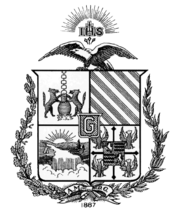Message From the President
Office of the President
At the beginning of this past weekend, a group of our students posted a video on YouTube entitled, “Where Were You When.” The video, which was addressed to me, Vice President Biggs Garbuio, Academic Vice President O’Connell Killen, and several senior administrators, presents a series of testimonial statements by our students, relating first-person accounts of racial, ethnic, religious, and sexual orientation discrimination and bias. The reported incidents took place on campus, off-campus, in the classroom and outside of it; they involve fellow students, faculty, staff and community members. The statements are juxtaposed with the words of the University’s Mission Statement, and demand accountability not only with the Mission, but for equitable, fair, and appropriate treatment of those students who come from under-represented groups.
The accounts related in the video are difficult to hear and it is frustrating to know that these incidents, and incidents like them, happen in the context of our students’ experience. I believe strongly in the right of our students to give voice to their experience, while underscoring the fact that it takes courage to do so. In this video – as I have heard in other contexts and settings – I hear clearly and loudly the voices of individual students who have been disrespected, ignored, marginalized and hurt by the actions of others, primarily from within our University community. And I believe it is important for our students to speak out in the face of injustice and insensitivity.
I have viewed the video a number of times, and while it opens with the naming of specific individuals, I see this as in fact being addressed to the entire University community. Without question, there are numerous individuals at Gonzaga who have worked, and work consistently, to support students from under-represented populations and to educate the broader community to the damaging effects of racism and intercultural incompetence. Yet in the collective, the individual accounts of these students, and others, point to persistent, systemic problems of racism and intercultural understanding in our community.
Last academic year, I appointed a Council on Equity, Inclusion and Intercultural Awareness which has worked diligently throughout this year to critically examine many of the institutional realities that are faced by our students, faculty and staff. Their work included the recent Campus Climate Assessment and will yield a set of recommendations this fall that will serve to inform the University’s priorities and efforts. Some of their initial acts, such as the recently-approved recommendation to amend the Mission Statement, have already been realized.
Gonzaga University seeks to educate each and every one of our students – no matter their background or point of view – in a manner that affirms their intrinsic sacredness and affords each of them the same rights and privileges. We aspire to create an environment that is nurturing and supportive, one within which every person feels as though they fully belong even as one’s unique identity is honored and supported. As a community of individuals with diverse backgrounds, values, opinions and experiences, there will be differences of opinion and disagreements. We seek to create and support a climate that recognizes but does not replicate reactive divisiveness in the wider culture. If we are to realize the aspirations of our Mission, it will require the commitment of every member of our community, working every day, to do so.
Therefore, I ask, even as we come to the conclusion of this academic year, that we remain committed to creating a community in which everyone is treated – and treats one another –
with dignity, respect, and appreciation for who they are and the unique and varied gifts and experiences they bring to our University.

